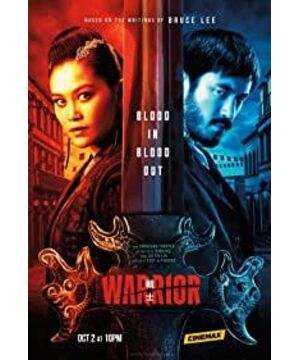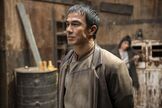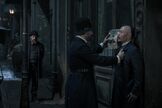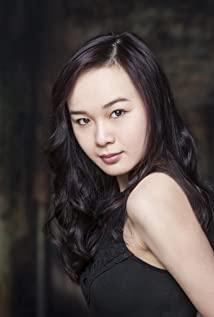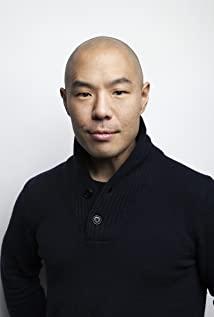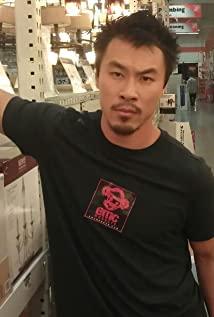A toast to Bruce Lee!
Forgive me for never thinking about this before, Bruce Lee once set his sights on Chinese immigrants in the 19th century. Thanks to this drama for the first time to put Chinese Americans as the main body in the foreground.
I'm sorry, my name is easily misleading, it's a background introduction to the history of labor's blood and tears. No, what I meant was that this drama is nothing but an idealized story about Chinese immigrants that could become a folklore, like "Three Kingdoms", "Sui and Tang Dynasty", if it's done well.
Briefly sort out the labor timeline:
American Westward Movement, late 18th century
The first wave of Chinese immigration, the 1848 Gold Rush
Children studying in America, 1872
The Chinese Exclusion Act, 1882
The show started in 1878, seven years after the East-West connection of the American Railway, and a large number of Chinese were stranded in the western United States. In 1877, the California economy was in a downturn, and the first wave of Chinese exclusion appeared in the United States. Against such a chaotic background, the Chinese face an unknown fate of confusion and confusion.
The other two characters on the show are American and Irish.
Americans, just 13 years after the Civil War
The Irish began to immigrate almost at the same time as the Chinese immigration. They began to emigrate on a large scale after the "potato plague" in 1845. Due to geographical and historical reasons, the number of Irish people was more than that of the Chinese. From 1820 to 1862 alone, there were 200 people. million people. At this time, the number of Chinese was only one-tenth of them.
The protagonist of this film faces the following major forces:
American side
Politicians: Remove the skin color, they don't mean to target the Chinese. For politicians, their role determines that they want to ensure the interests of the majority, and the Chinese just happen to be in the vulnerable group, and they have just experienced chaos and they have no experience to care for the minority for the time being. said they were not even in the mood to take care of their wives (in 1870, blacks had the right to vote, but women did not)
Businessman: From the point of view of profit, they like the Chinese, because the Chinese can save a lot of costs. The only problem is that they need an environment that can ensure that they can earn profits, and maintaining the Chinese will make the environment unfavorable for them to earn. To take profits, then they have only two choices, either change the environment or give up the Chinese.
Police: The function of this role dictates that they will pay more attention to vulnerable groups as this is the source of unrest. Of course, I only said "concern", not "protect". This means that there is actually very little they can do.
Sympathizer: This is the weakest of the four characters, because most of them are lawful, they neither make rules nor maintain them, so they can do very little. Fortunately, even if they are weak, There is always warmth.
Irishman
At present, in this category, the goals are the most consistent, and they are also the most directly related parties affected by the Chinese. All four roles on the US side have wiggle room, but they don't. That is to say, they are the most determined and persistent in their decisions.
Chinese
Leaders: Including the two generations of leaders of the two major gangs and the owners of brothels. They are the people who know the plight of the Chinese the most, but there is not much they can do. It is enough to have a stable foothold. The most ironic thing is: as the people who most want to live a stable life, most of the battles on the table happen to them. Because the person with the least capital can only fight with life.
Helpers: This is divided into two parts, those who still have their braids on and those who have lost their braids. Those with pigtails will want to save money to return to their home country one day, while those with pigtails will squeeze every penny to use as capital to take root.
Intermediary: This person reminds me of the Chinese diplomat at the US embassy in China. We thought he would go to the Chinese. No, he followed the rules of the game.
Protagonist: What kind of person will he become? Let’s see the aftermath.
Judging from the huge structure revealed in the first episode, this drama already has the best proposition for me, and this also makes me not obsessed with complaining about the Japanese starring.
HBO is good at violence and politics, which is what keeps me going. Although in the 7 episodes so far, there have been some parts that I think are inconsistent, but before the end of the season, let's not jump to conclusions too soon.
~~~~~~~~~~~~~~~~~~~~~~~~~~~~~~~~~~~~~~~~~~~~~~~~~~~~~~ ~~~~~~~~~~~~~~~~~~~~~~~~~~~~~~~~~~~~~~~~~~~~~~~~~~~~~~ ~~~ The first season is finally over~~~~~~~~~~~~~~~~~~~~~~~~~~~~~~~~~~~~~~~~~~ ~~~~~~~~~~~~~~~~~~~~~~~~~~~~~~~~~~~~~~~~~~~~~~~~~~~~~~ ~~~~~~~~~~
After struggling for a long time, I did not change the four-star evaluation. I only gave four stars at the beginning because the first episode gave me the best hope: the grand pattern, the chaotic San Francisco at the end of the 19th century, and the history of Chinese workers' blood and tears. After the end of the first season, four stars, three stars I gave Hollywood's mature production industry foundation, and one star was given to Bruce Lee's eight-page mysterious manuscript (I have never found the original manuscript on the Internet, and I have no way of knowing what the original story was like. ).
One sentence summary: Who knows what they're up to except the first and last episodes?
I know this show is based on Bruce Lee's manuscript, but sorry, I don't know the content of the manuscript, but the mere eight pages of the manuscript may not reveal much. I also know that the show is directed by Justin Lin, but so what? He immigrated to the United States when he was nine years old. How much content about Chinese Americans has he filmed since his debut? Also, he doesn't seem to have been exposed to historical subjects at all.
What was the production company thinking? Bruce Lee, Chinese themes, Chinese actors, Chinese directors, action dramas, action actors, action directors, get it? Is this logic?
Well, I have to control my emotions, because I'm going to start seriously complaining.
There are really not many movies and TV dramas about Chinese in the United States. If I have to mention it, my dusty head can only think of "Beijing People in New York" and Jackie Chan's "Red Zone". Forgive me for being a 84 vintage. And both of them are modern immigrants. As for the image of Chinese people in film and television dramas more than a hundred years ago, I actually thought of "Pirates of the Caribbean 3"? There is also Jackie Chan's version of "Around the World in 80 Days". Well, there's Bruce Lee's Raptors Crossing the River.
With so few film and television themes, I had the greatest expectations for "Warrior" when it showed almost all the complicated scenes faced by the first Chinese immigrants in just the first episode. This allowed me to temporarily endure the discomfort of the Japanese-American star, and also temporarily ignored the writer's setting of forcing the star against his sister.
To be honest, because of the scarcity of themes and the addition of Bruce Lee’s signature, as well as Hollywood’s relatively strict production system, when I watch this drama, I will forcibly rationalize the content of the drama, instead of questioning all the reasonableness for the first time. sex. This will affect my judgment on it to a certain extent. However, when I first determined the title, I still added the words "to be revised". And this drama really lived up to those three words in the end, which is really regrettable.
For the whole play, I roughly estimated the content of the three groups of Chinese, Americans, and Irish immigrants in the play. Among them, internal disputes among Chinese accounted for 50%, interaction between Chinese and the outside world, 20%, and between Americans. , 10% of politicians, businessmen, etc., 15% of the police, the Irish, only a poor 5%.
I was expecting it to be a drama, but unfortunately, it's an action movie, so the focus of the show is on the guys who can beat it. Who can fight? Chinese. As for the Americans and the Irish, twice each, if I remember correctly.
That's it.
No way, the name of this show is "Warrior", not "The History of Chinese Blood and Tears". It's really in vain. I spent two days to toss out the distribution of the various forces above.
Well, now I've embraced the action movie. With this preparation, I can endure a little longer. After all, compared to other American action films, this show is already very oriental in terms of action design.
(Not enough energy, continue tomorrow)
View more about Warrior reviews


